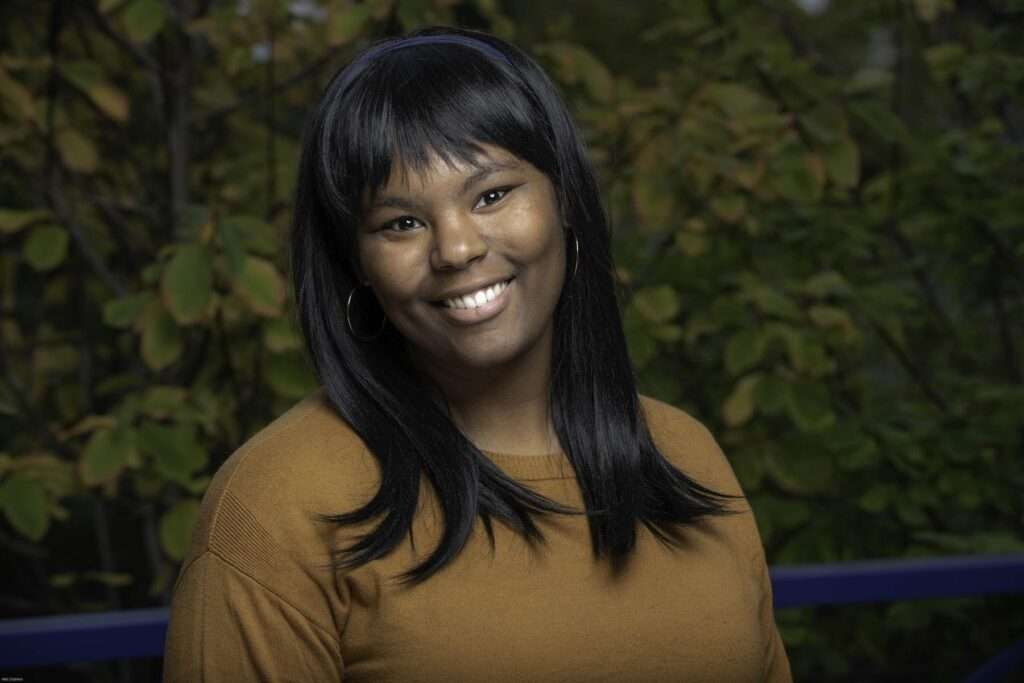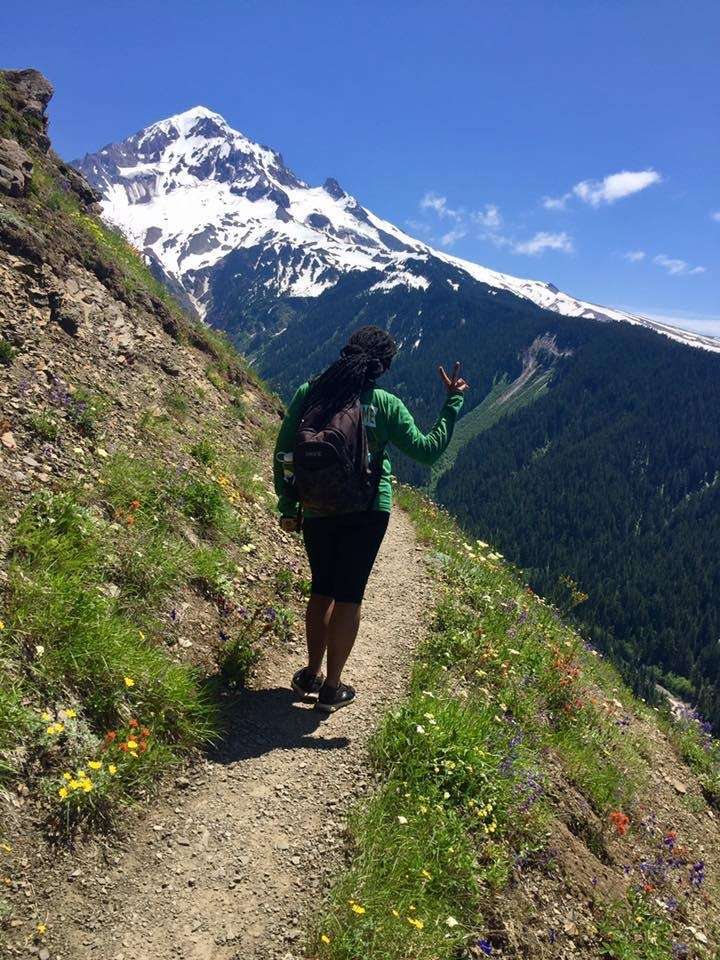
Here at the Center for International Environmental Law (CIEL), we know our strength comes from the people who make up our movement — from our staff, to our partners, to our steadfast supporters. Our “Meet Our Staff” series will introduce you to some of our amazing staff members, who work behind the scenes every day to defend the right to a healthy environment.
Ka’sha Bernard is a legal organizer and staff attorney in CIEL’s Climate and Energy Program. Ka’sha’s work focuses primarily on halting the petrochemical infrastructure buildout that threatens the global climate and the health of frontline and fenceline communities, particularly across the US Gulf Coast and Appalachia region. Ka’sha graduated from Louisiana State University with a BA in International Studies, concentrating on Global Diplomacy and the Middle East. Ka’sha then earned her Juris Doctor from Notre Dame Law School. Prior to joining CIEL, Ka’sha completed a two year fellowship at Crag Law Center in Portland, Oregon, where she worked primarily on their Climate and Communities programs. Ka’sha is a member of the Oregon State Bar.
Tell us about the work you do at CIEL!
Ka’sha: I am a legal organizer/staff attorney, which is an interesting combination. What I’m mostly doing is getting an idea of what legal actions have been going on in the plastics and petrochemical sphere in the Ohio River Valley and down in the Gulf Coast. Then, I’m connecting with lawyers and frontline leaders in those regions to see what has been done and how we can pull all of them together to stop the petrochemical buildout.
Why do you think the work you do/CIEL does is important?
K: I think this work is important because the oil and gas and petrochemical industries have such a negative effect on people’s livelihoods. Despite the myths they tell about how beneficial it is, being able to unearth the realities and harms that it causes is important work.
What do you wish other people knew about CIEL or CIEL’s work?
K: I wish people knew how intertwined human rights work is with environmental work. When I was working on the West Coast and when people would hear about environmental law, they think “oh the trees and the animals,” without thinking about the environmental impacts on humans, too. I think CIEL’s mission to incorporate human rights in environmental work is important and refreshing.
What did you do before joining CIEL’s staff?
K: I was in Portland, Oregon. I moved there right after law school without knowing anyone, other than the people I was working with at the Crag Law Center. It’s a small nonprofit with staff attorneys that do Communities, Wildlife and Climate work. I was doing work mostly in the Climate and Communities programs, so working on some of the youth climate cases at the federal and state level. I was also doing some land use work, trying to stop pipelines from getting built on the coast, and working to stop a freeway from expanding in the middle of Portland’s historically Black neighborhood.
Did your experience as a fellow with the Crag Law Center motivate you to come to CIEL?
K: Yeah, being from the Gulf Coast and seeing how intertwined the oil and gas industry is with the economy and the whole political system down there motivated me to apply for this position, which is the perfect combination of my personal interests and environmental work experience.
What do you like to do for fun?
K: I like to cook, crochet, journal, and walk any and everywhere with my dog Djali. I also enjoy thrifting and reading.
What books are you reading right now?
K: Right now I’m reading Into the Water by Paula Hawkins after recently finishing The Girl on the Train.
If you can learn any new skill, what would it be?
K: I want to learn how to play the piano. I tried to teach myself while I was studying for the Bar, but it was taking too much time; however, it is something I’ve always wanted to learn how to do.
What is something you’re excited about for the coming year at CIEL?
K: I’m looking forward to creating and distributing tools that will help frontline communities combat the petrochemical buildout, work with partners across the country and globe, and continue to develop my legal skills with the brilliant minds on staff.
Interviewed by Sarah Street, Communications Intern
Originally posted on September 21, 2021


